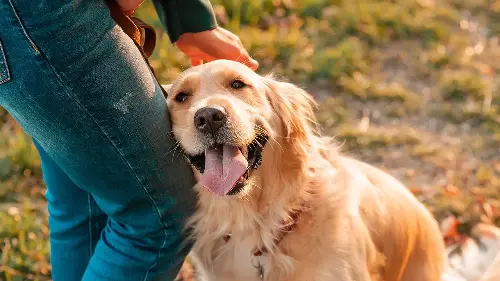
MANILA, Philippines – Welcoming a dog into your life is both an exciting and stressful experience, especially for first-time fur parents.
The thrill of becoming a fur parent and having someone to be with through the ups and downs of your life is an incredibly rewarding experience, but on the other hand, it comes with the responsibility of meeting their needs to ensure they stay healthy and happy.
Since pets brighten our world, it is equally important to reward them with a life full of love, care, and the best environment to thrive in.
Welcoming your new dog
As a first-time pet owner, the first thing you have to do is research, whether it is searching up information online or seeking the advice of current and former pet owners.
According to Dr. Gio Esguerra, DVM, a veterinarian from Vets in Practice Quezon City, some breeds have certain “requirements” that need to be met because some are “high-energy dogs” wherein they need a lot of space to move around.
Once a breed has been chosen, skills training is very advisable to do at an early age, but Esguerra points out that the process would be slow and it would be best to teach one skill at a time.
Positive reinforcement should also be present while teaching, “[It] is not always food-related, so you have to see kung saan magrerespond yung pet natin (where your pet would respond).”
As for potty training, Esguerra explains that dogs “don’t like pooping where they sleep.”
“[For] crate training, you have to designate a pee pad for them, wherein they can comfortably pee also, it should be within the vicinity so that’s why crate training is important as well.”
Giving vaccinations and booster shots
Administering vaccines and booster shots are vital too since it gives dogs protection from various diseases.
“We have what we call core vaccines, so these are vaccines that should be given to all dogs regardless of where they are in the world,” says Esguerra.
“That includes protection against parvovirus, distemper, adeno and parainfluenza.”
“As for the booster of these vaccines… it depends on the prevalence of the disease in a certain country,” he adds.
“In the Philippines, it’s these diseases that are prevalent, so we do recommend yearly vaccinations and booster shots because it’s better to give preventatives rather than when the puppies are already affected,” explains Esguerra.
Feeding with proper nutrition
Giving milk — especially milk that comes from their mother — is very important for newborn puppies.
“If they don’t get colostrum at the first 24 hours of life, then they won’t get that maternal antibodies and immunity,” says Dr. Everlyn Austria, DVM, the scientific communication manager of Royal Canin Philippines.

According to Esguerra, transitioning from milk to solid foods should be as slow as possible because one common problem that could happen to the puppies is weaning diarrhea.
“When puppies are two months and above, they should be on full dry food,” says Austria.
Esguerra adds that small dogs age faster compared to bigger dogs, as the former reaches adulthood in just 10-12 months, 5-8 months earlier than the latter.
“There are a lot of pet owners that make the mistake of still giving puppy food or they give adult food much earlier, which can disrupt their growth as well,” Austria says.
Maintaining dog’s hygiene
Finding a groomer who is skilled in handling dogs properly is crucial, as grooming can be a stressful experience, especially for those who will undergo the process for the first time.
To help dogs feel more at ease during the session, Esguerra recommends anti-anxiety supplements that can be given beforehand.
In addition to maintaining the dog’s hygiene, grooming also allows groomers to detect any potential issues.
“Sometimes they find out that there’s an ear infection, they can see that there’s a skin condition that the owner did not see, so it’s very important to do regular grooming,” Austria notes.
Knowing the warning signs
According to Austria, the most common symptoms typically observed in dogs are visible signs such as vomiting, diarrhea, skin conditions, hair loss, and loss of appetite.
“Our advice, as veterinarians, is to have your dogs and cats have frequent checkups in the veterinary clinic, especially when they’re much older because dogs and cats cannot talk,” says Austria.
“[For] puppy, frequently of course during vaccination period; if adults, at least once a year; for seniors, at least twice a year for wellness checkups.”
Esguerra, meanwhile, advises that rather than waiting for the observed red flags to worsen, it is best to quickly seek veterinary help.
“Some of these clinical signs, they can manifest in simple diseases, but they can also be a sign of something worse or something much more serious,” explains Esguerra.
By staying informed and attentive, you can ensure that your new furry buddy lives a happy and healthy life by your side. – Rappler.com
